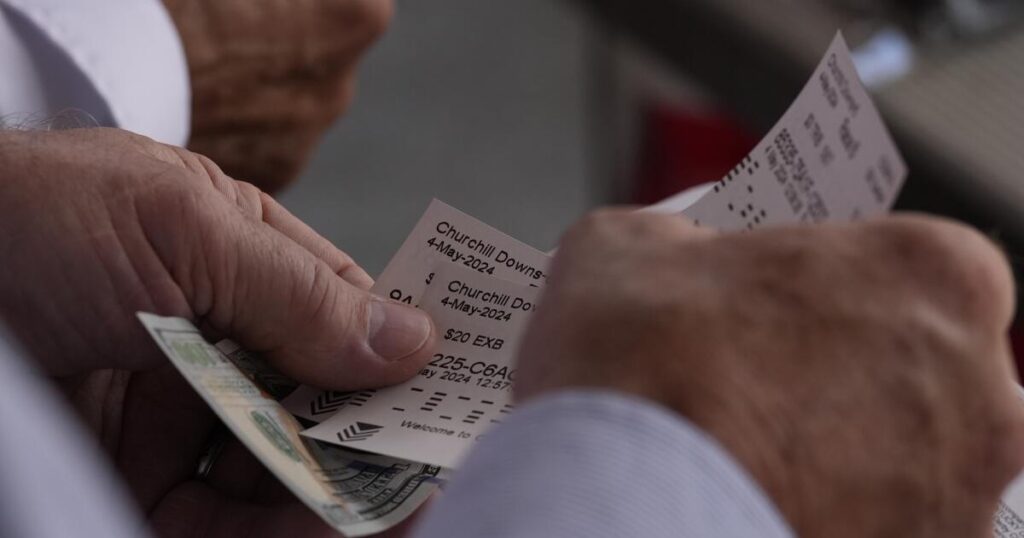Free and fair elections are the bedrock of democracy, and as we approach the next elections we are facing unprecedented threats. Some of these threats are well known, while others go largely unnoticed and could have serious consequences. Among the latter threats is a dangerous attempt to convince one of our financial regulators to effectively sanction gambling on the election outcome.
Such questions would be expected to be answered by the Federal Election Commission, which has the expertise, history, and authority to regulate elections. But a financial services company has petitioned an unnamed financial regulator to allow election betting through the commodities markets. The petition has the potential to unleash a flood of misinformation and harm investors without any clear purpose.
Karsi has asked the Commodity Futures Trading Commission to approve public trading of so-called event contracts, which would allow investors to bet up to $100 million on who will win the majority in the U.S. House and Senate in November. The commission rightly rejected the proposal last fall, but the saga isn't over yet. Following a standard financial industry playbook, the company is suing financial regulators, hoping the courts will overturn their experts and allow it to open its virtual election casino.
The stakes are high in the case, which is expected to go to trial in federal court in Washington this week. First and foremost, the ability to gamble on elections and “win” tens or even hundreds of millions of dollars creates powerful new incentives for bad actors to influence voters and manipulate the outcome in their favor. Artificial intelligence-driven “deep fakes” and other technological tools are readily available, increasingly cheap, and distributed through social media.
Just a few months ago, AI robocalls impersonating President Biden targeted voters in the New Hampshire primary in an attempt to discourage turnout. We will undoubtedly see more of these tactics in the run-up to November. And allowing huge amounts of money to influence the outcome of elections could accelerate these tactics even further, with dire consequences for our democracy.
The idea of betting on elections is not new. Before the 2012 showdown between President Obama and Mitt Romney, bets on the outcome through Ireland-based InTrade website led many observers to believe the Republican candidate was likely to win. But closer inspection revealed that one bettor had spent large sums of money to falsely favor Romney.
Election gambling is not only a threat to democracy, it could also cause massive damage to investors. As always-on market access becomes more widespread through game-like smartphone apps, celebrity ad campaigns, and deepfake disinformation, more Americans will be lured into risky bets. These technologies could also fuel speculative investment booms with huge damage to investors, as we saw with the “meme stock” boom in 2021.
Growing reliance on cryptocurrency trading and sports betting presents the danger of such activity expanding, and the threat to investors will only grow as gambling options inevitably expand beyond Congress' control to other federal, state and local elections.
Election betting contracts involve additional financial risks. Unbound by fundamental values, these markets are extremely easy to manipulate and difficult to monitor, further exposing unwary investors to risk. The information that determines the price of the contracts will be a patchwork of unregulated, opaque and unscientific sources, including opinion polls and media reports, which vary widely in rigor and reliability. The “house” that sets the odds and others seeking profit can selectively collect, distort and deploy data to manipulate prices.
What are they for? These contracts serve no useful purpose whatsoever. Originally limited to trading futures contracts on traditional commodities such as crops, livestock and precious metals, commodities markets have steadily grown to encompass more abstract “goods” such as stock index futures. Event contracts are the latest stage in this evolution, and while some of them perform useful functions in markets, the political gambling contracts in question serve no useful purpose whatsoever.
“These contracts are not a reliable means of hedging price fluctuations or setting the prices of the essential goods Americans rely on. That's what the Commodities Commission is supposed to regulate. As the smallest and least resourced financial regulator in the United States, the Commission should remain focused on overseeing the multi-trillion dollar commodities and derivatives markets, not attempting to oversee the electoral process.”
For more than 200 years, courts have consistently and strongly warned about the unique social harms of corrupting our electoral process through gambling. Congress no doubt recognized the great dangers this idea poses, which is why it gave the Commission the power to ban such contracts. The Commission was right to say no, and for the sake of our democracy, so should federal courts.
Dennis Kelleher is co-founder, president and CEO of Better Markets. Lisa Gilbert is executive vice president of Public Citizen.



